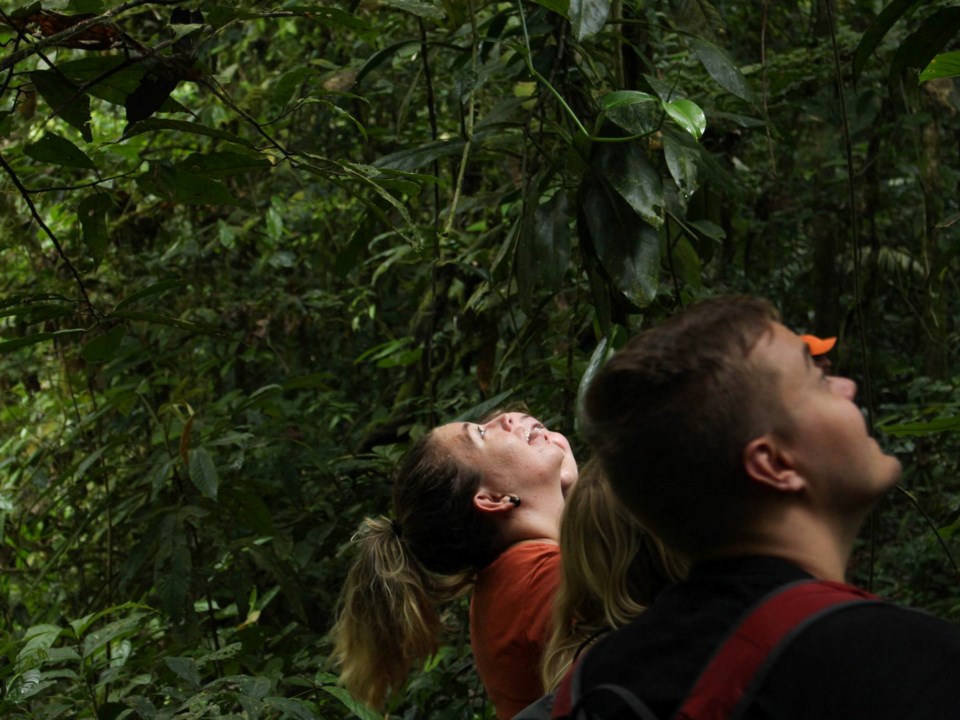While I was a student at MacEwan University I had the incredible opportunity of being a part of a student research team that travelled into the Ecuadorian Amazon to attend a research station deep in the jungle called Tiputini.
Each member of the research team was focused on a different facet of interactions between the Amazon and outside forces. Some focused on the oil companies' encroachment deeper and deeper into the jungle, others looked at the effects of Indigenous students' relocation from their Amazonian communities into the metropolitan world of Quito’s universities.
During our stay at the research station, we spent much of our evenings discussing the culture of the Waorani people, whose current and ancestorial home falls within the Amazonian region of Ecuador, with two anthropologists that were studying the group.
Professor and researcher Gabriela Valdivia told us it is nearly impossible to understand conservation when you have not known scarcity.
At the time she was referring to an Indigenous society that had traditionally known an abundance of food through the wildlife living in the jungle and the pockets of edible food that could be found all around them.
But after years of incursion of oil facilities deeper into their territory, and the transition to hunting for profit rather than just to feed their family, a drastic decline in wildlife and increased migration of animals away from their traditional hunting grounds became a serious issue for the people who relied on the Amazon for sustenance.
Valdivia explained it quite simply, if you have only ever known abundance, the concept of conservation seems absurd – that is until you face scarcity.
I think about the correlation between abundance, conservation and scarcity a lot – especially now with rising costs of oil, never-ending subdivisions and even our global food supply chain.
In many ways, Canada is truly the land of the prosperous. We have more space than we can shake a stick at, paired with a population that is slightly more than the city of Tokyo’s population.
And so, I would argue that Canadians don’t truly understand scarcity for the most part, at least not the way other countries do – at least not yet.
We just continue building suburbs and expanding. This is all good until one day we run out of room, and we have depleted most of our finite resources.
It makes me wonder if conservation is possible before we approach scarcity. Can we nurture a culture that looks to long-term planning beyond a decade? Beyond four decades?
“We do not inherit the Earth from our ancestors, we borrow it from our children,” goes the popular Native American proverb from Chief Seattle.
I have often been referred to as cheap or frugal. To be honest, it’s not something I consider to be an insult. I think being mindful of what you expend is wise.
This applies to so much in our everyday lives, including the prices at the pumps. I am already trying to find ways to cut down on my errands. I have thought about preparing my bicycle for when the roads dry, I am also more aware of the price of my produce in the grocery store, not to mention I have already turned my thermostat down by two degrees.
Scarcity drives conservation, but can we achieve moderation prior to that?



